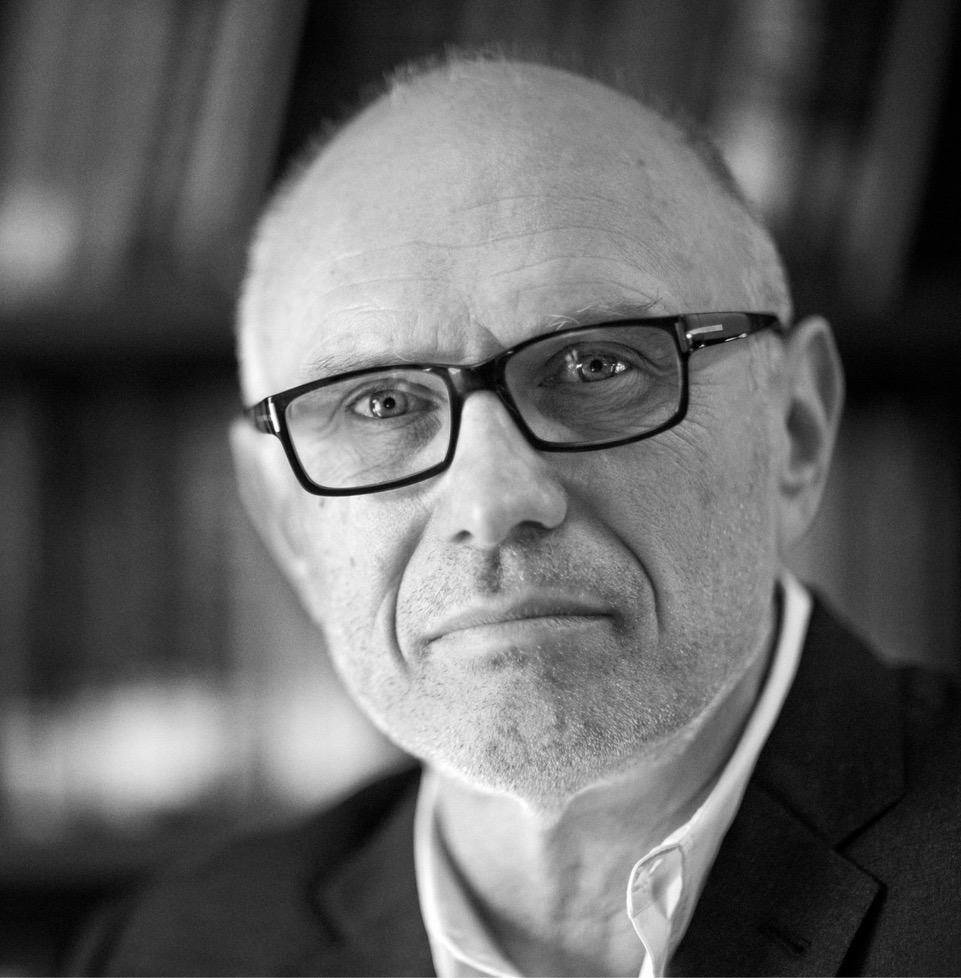
Miroslav Volf is considered one of the greatest living theologians whose breakout work, Exclusion and Embrace, is easily among the most influential works of theology in the last fifty years. Volf, currently the director for the Center for Faith and Culture at Yale University, is equally at home with evangelicals, among mainline churches, and in academic theology. He has been an advisor to the White House, a speaker at the National Prayer Breakfast, co-teacher of a course with former British Prime Minister Tony Blair, and a frequent commentator on religious and cultural issues for media outlets such as NPR, CNN, and Al Jazeera.
Growing up in what is now Croatia, Volf became a Christian, and a Pentecostal one, under communist rule as a teenager. Thus, he lived as a “minority among a minority” in the then USSR, where the dominant Christian groups tended to be part of the Eastern Orthodox Churches or Roman Catholic, and all religion was discouraged. As a young scholar in his native Croatia, Volf witnessed, first hand, the horrors of violence based on religious and ethnic bigotry—experiences that would later inform Exclusion and Embrace and Free of Charge, a much more accessible work that addresses similar themes; the latter of these was selected by Archbishop Rowan Williams as the Anglican Lenten study book in 2006.
Reading or listening to Volf can be equal parts inspiring, enlightening, intellectually stimulating, and personally challenging. Volf’s early theological research made the argument that the way a church is run (its polity) could serve as a microcosm for the life of the Trinity. In light of this, he argued toward a congregationalist church polity (the way Baptist churches and a handful of other denominations are set up). He currently describes himself as a contemplative-Pentecostal congregationalist in the Anglican Church, in many ways a walking enigma within Christian thought.
In 2002, when being considered for the Dean of Harvard Divinity School, Volf declared he would move the school more firmly in the direction of constructive theology and training Christian ministers. While recognizing the value of comparative religion and social science, Volf forthrightly commented, “If you just analyze religion, you’re doing good work, but you’re socially inconsequential. You’re not shaping the world.” He was not selected for the role.
Around that same time, Volf, having recently moved from teaching at Fuller Theological Seminary to Yale Divinity School, was at a conference on Christian thought organized at Wheaton College. Although Wheaton was, and still is, a bastion of evangelical thought, the conference featured a number of progressive, mainline academics, and Miroslav Volf had largely been grouped with this latter category. At the time he was developing his follow up to Exclusion and Embrace, in what would become The End of Memory, clearly grounding the experience of forgiveness and reconciliation in the eschaton, that is, the second coming of Christ. When pressed on the issue, he caused a stir among some mainline academics by declaring “Of course I believe in the second coming of Jesus Christ.”
In 2011, he also caused a stir among evangelicals when speaking about his book Allah: A Christian Response by making a compelling case that the God of Islam was the same as that of Christianity, suggesting this might serve as a common ground from which to foster respectful dialog. He rebuffed objections from some students and faculty, remaining steadfast in that declaration. Miroslav Volf is, if nothing else, intellectually honest, unflinchingly authentic, and steadfastly characterized by integrity. One may or may not agree with his conclusions, but the fact that he is pursuing a deep Christian theology, rooted in Scripture and in Christian orthodoxy, is not seriously in question.
A key theme of Miroslav Volf’s professional mission has been a desire to develop thoughtful, committed, and rigorously-trained pastors. He is concerned that too many pastors become either salesmen manipulating people into a shallow faith or psychologists who address some of the real issues of life but do so without deepening the Christian walk of their congregants. The goal of ministry, according to Volf, “is to help make faith a way of life for persons, communities, and cultures.” Rather than seeing the pastor as a mediator between faith and culture, and thus cheapening one or the other, he sees the Christian way as a fully-embodied way of being within the world as every follower engages with culture personally and in the light of their identity in Christ.
His current work, centered on public faith, includes an effort to provide Christians with constructive and practical ways of living out an authentic and biblically-informed Christianity in society, including the interpersonal and the political sphere. Volf is able to address both the academic theologian and the untrained lay person in an engaging, meaningful, and challenging way that will almost assuredly push the hearer to action. We are excited to welcome Miroslav Volf as this year’s winter theologian and warmly welcome the community to attend.
We are thrilled to have preeminent theologian Miroslav Volf with us this weekend. On Saturday, January 20 at 6:00 PM in the SMBC Sanctuary, Dr. Volf will speak about Christianity’s contribution to human flourishing. We encourage you to attend and invite friends and coworkers. On Sunday, January 21 all Adult Bible Communities are invited to hear Dr. Volf speak during the 11:00 AM Bible Study hour, also in the Sanctuary.*Note, a number of interviews, articles, and podcasts were consulted for this blog post, including several published in The Christian Century and Christianity Today. Direct quotes were taken from those interviews or from the recollections of those who had direct interaction with Miroslav Volf.
Note, a number of interviews, articles, and podcasts were consulted for this blog post, including several published in The Christian Century and Christianity Today. Direct quotes were taken from those interviews or from the recollections of those who had direct interaction with Miroslav Volf.





